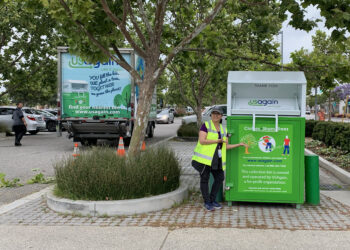Carpet America Recovery Effort (CARE), which runs the mandatory collection and recycling program under California law, achieved a 21% recycling rate in 2020, according to an annual report. That was up from 19% in 2019.
But last year’s number was still short of the 24% recycling rate required by Jan. 1, 2020. The 24% target was included in legislation passed and signed into law in 2017.
Carpet face fiber, which is the soft part people walk on, can be made of nylon, nylon 6,6, PET/PTT and polypropylene. Additionally, substantial amounts of calcium carbonate can be recycled from carpet.
A CARE press release emphasized that the 2020 number, which was achieved despite the challenges of the pandemic, was an all-time high for the program.
The annual report included some other interesting numbers during a year dominated by the emergence and rapid spread of COVID-19. For example, carpet sales in California plunged from 81 million square yards in 2019 to 67 million square yards in 2020, down 17%. The recycling program collected 77 million pounds of post-consumer carpet in 2020, down 6% from 2019.
The report notes a total of 52.6 million pounds of materials were recycled from post-consumer carpet in 2020, down 10% from the year before. The pounds break down as follows: 37.5 million pounds of carpet fiber recycled (down 13%), 13.2 million pounds of calcium carbonate recycled (down 6%), 1.2 million pounds of tile recycled (up from 600,000 pounds) and 765,000 pounds of carpet reused (up from 717,000 pounds).
Consumers pay a fee of 35 cents per square yard when they buy new carpet, and the money funds CARE’s program. As a result of decreased carpet sales, fee revenues last year totaled $23.3 million, down 17% from 2019.
In 2020, CARE’s program paid $18.5 million in subsidies to carpet collectors, processors and manufacturers, up from $14.6 million in 2019, or up 27%. Of the subsidies in 2020, $1.6 million was a special COVID payout.





























